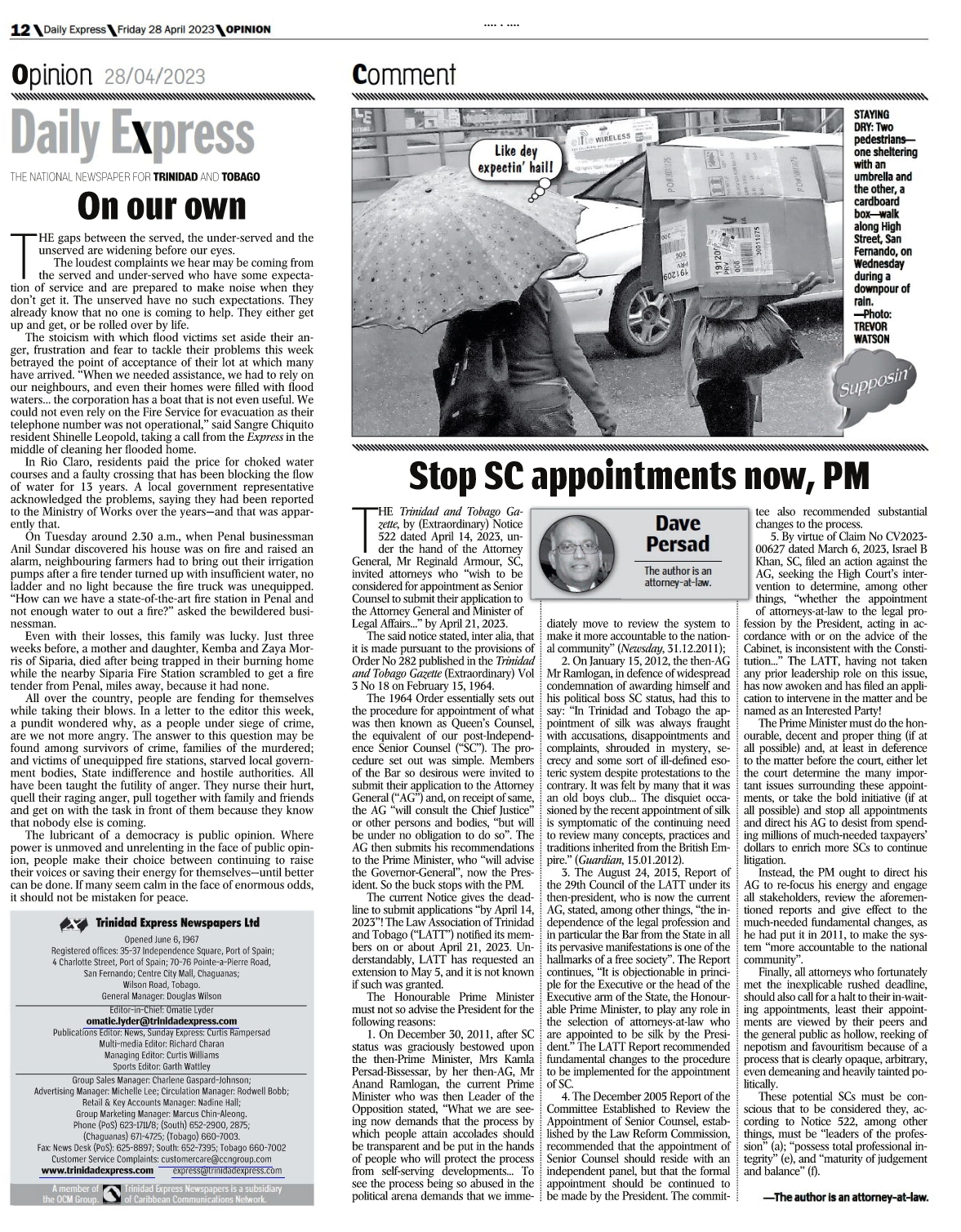On our own
THE gaps between the served, the under-served and the unserved are widening before our eyes. The loudest complaints we hear may be coming from the served and under-served who have some expectation of service and are prepared to make noise when they don't get it. The unserved have no such expectations. They already know that no one is coming to help. They either get up and get, or be rolled over by life.
The stoicism with which flood victims set aside their anger, frustration and fear to tackle their problems this week betrayed the point of acceptance of their lot at which many have arrived. 'When we needed assistance, we had to rely on our neighbours, and even their homes were filled with flood waters... the corporation has a boat that is not even useful. We could not even rely on the Fire Service for evacuation as their telephone number was not operational,' said Sangre Chiquito resident Shinelle Leopold, taking a call from the Express in the middle of cleaning her flooded home.
In Rio Claro, residents paid the price for choked water courses and a faulty crossing that has been blocking the flow of water for 13 years. A local government representative acknowledged the problems, saying they had been reported to the Ministry of Works over the years-and that was apparently that.
On Tuesday around 2.30 a.m., when Penal businessman Anil Sundar discovered his house was on fire and raised an alarm, neighbouring farmers had to bring out their irrigation pumps after a fire tender turned up with insufficient water, no ladder and no light because the fire truck was unequipped. 'How can we have a state-of-the-art fire station in Penal and not enough water to out a fire?' asked the bewildered businessman.
Even with their losses, this family was lucky. Just three weeks before, a mother and daughter, Kemba and Zaya Morris of Siparia, died after being trapped in their burning home while the nearby Siparia Fire Station scrambled to get a fire tender from Penal, miles away, because it had none.
All over the country, people are fending for themselves while taking their blows. In a letter to the editor this week, a pundit wondered why, as a people under siege of crime, are we not more angry. The answer to this question may be found among survivors of crime, families of the murdered; and victims of unequipped fire stations, starved local government bodies, State indifference and hostile authorities. All have been taught the futility of anger. They nurse their hurt, quell their raging anger, pull together with family and friends and get on with the task in front of them because they know that nobody else is coming.
The lubricant of a democracy is public opinion. Where power is unmoved and unrelenting in the face of public opinion, people make their choice between continuing to raise their voices or saving their energy for themselves-until better can be done. If many seem calm in the face of enormous odds, it should not be mistaken for peace.

